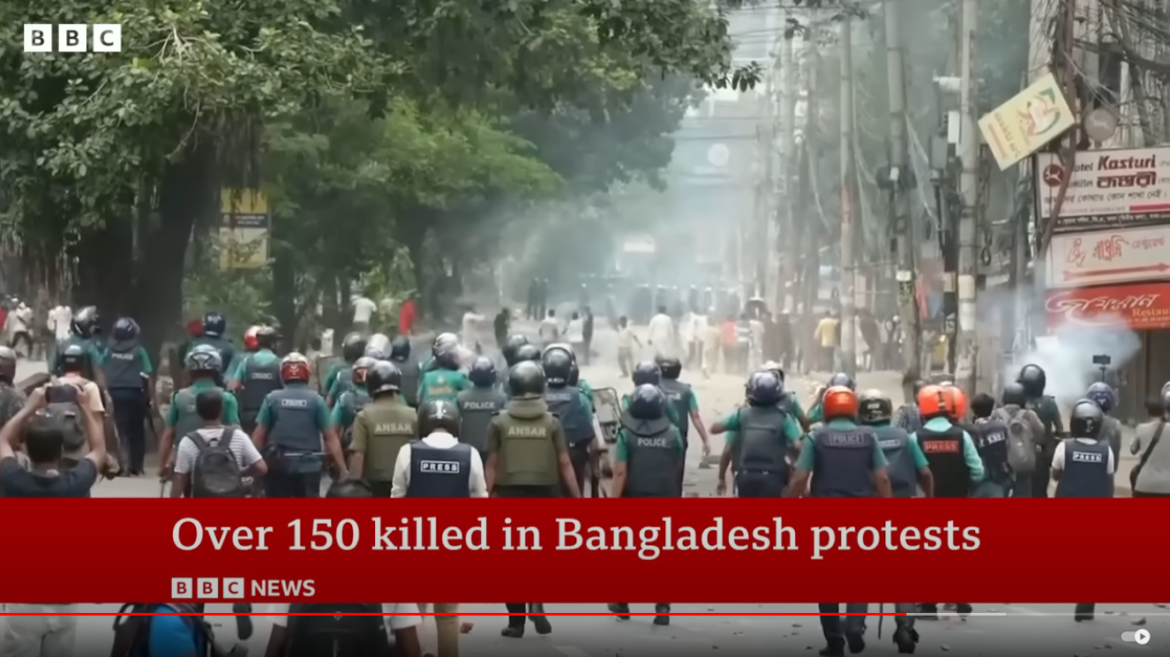More than 150 people have been killed in Bangladesh as nationwide protests escalate following the Supreme Court’s decision to amend the controversial government job quota system. Despite the court ruling that only 5% of government roles can be reserved for veterans’ relatives, students vow to continue their protests until the order is fully implemented.
The original quota system reserved one-third of public sector jobs for the relatives of veterans from Bangladesh’s 1971 war for independence from Pakistan. The changes have sparked widespread outrage, with protestors demanding immediate implementation of the new ruling.
In response to the unrest, Bangladeshi authorities have imposed a nationwide curfew and a communication blackout in an attempt to control the situation. The government’s measures have been criticized by human rights groups who argue that such actions exacerbate tensions and hinder peaceful protests.
The protests, which began last week, have rapidly intensified, drawing attention to broader issues of governance and social justice in the country. As the situation unfolds, the international community watches closely, concerned about the implications for stability and human rights in Bangladesh.



